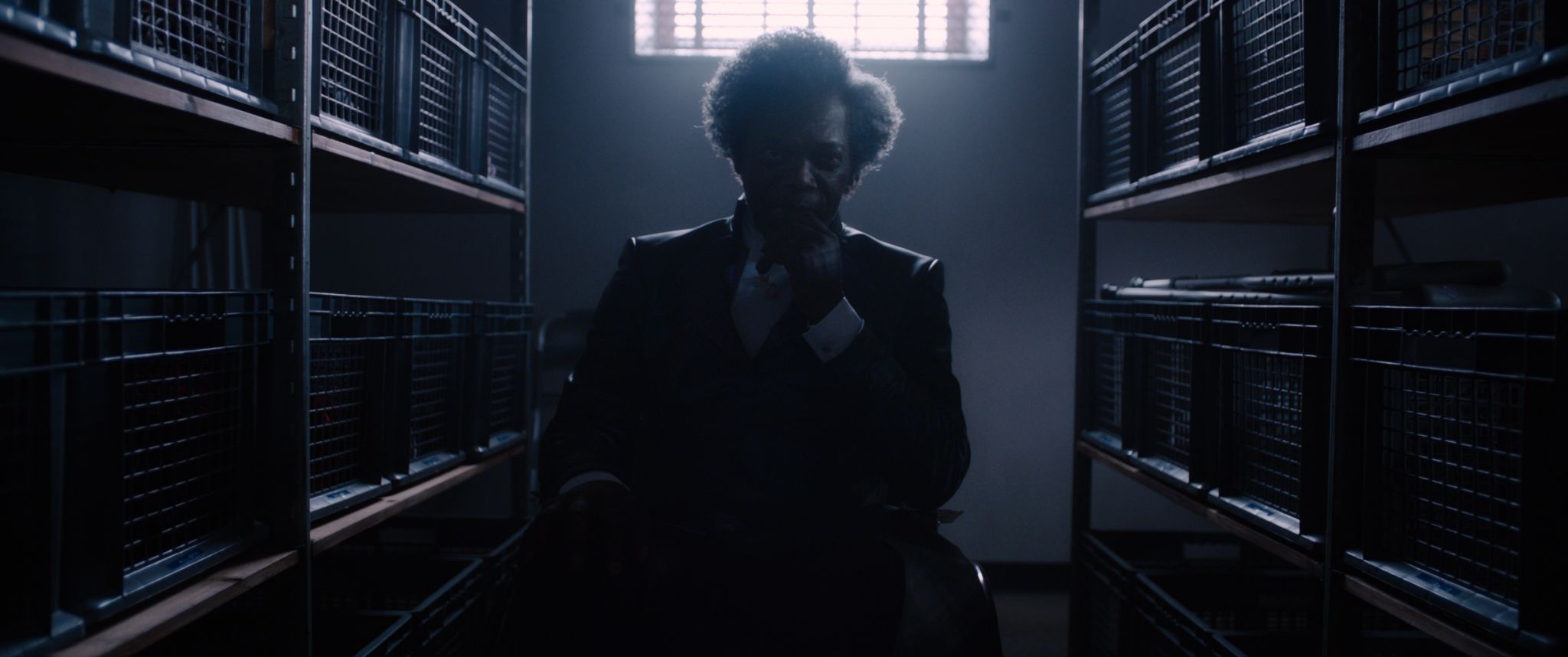For most of its runtime, Glass is an absorbing oddball genre effort. Would you expect any less from M. Night Shyamalan, who can so expertly keep a straight face and hushed tones in patiently developed high-concept dramas, horror and the uncanny slipping in around the edges? Here is a double sequel bringing two old hits together in one Franken-franchise, with James McAvoy's multiple-personality serial killer from 2017's Split chased by Bruce Willis's indestructible David Dunn from 2000's Unbreakable. They're fine twin pictures, the earlier one a slow-burn superhero origin tale told with uncommon depth of feeling and tremulous uncertainty in tense, unbroken long takes, the latter a jumpy, base, needlingly itchy supervillain reveal in a sweaty basement psychological bestiary. In the film's opening, the two fit together nicely, with Shyamalan near the peak of his filmmaking prowess, framing humane and sensitive performances from Willis and Spencer Treat Clark (returning as Dunn's son). It's a natural extension of Unbreakable's themes of loneliness and familial connection fractured through the burden of being blessed with unusual gifts. In the years since we last saw Dunn, he has remained a low-key vigilante, sensing the misdeeds in passerby's minds and taking action when necessary, emerging from moonlit shadows shrouded in a simple rain poncho. He has a sense of duty, doing what he can to make the world around him a marginally better place. He's searching for The Horde, the split serial-killer who has continued his abductions since the end of his movie. Bringing the characters together extends the themes of brokenness that one's innate capabilities can not heal, how damage of one's past inescapably informs the traumas of one's present, even and especially in forming relationships. It's nifty in classically Shyamalanian fashion, deliberate and precise frames, foreboding yet warmly orchestrated score, fastidiously cautious pacing. He's a consistently intentional filmmaker; even his missteps come from a place of earnest attempts at signaling his story's intentions.
Then Glass moves into its lengthy second act set entirely in a mental hospital (an impressively sturdy facade imbued with Shyamalan's usual great eye for spacial suspense) where a specialist in delusions of grandeur (Sarah Paulson) treats the villainous genius mastermind Mr. Glass (Samuel L. Jackson) by bringing in the other two characters for unconventional group therapy. There the movie's absorbing melancholy mystery slowly fades in the face of a script that starts to spell its comic-book-101 cultural criticism a little too overtly and broadly. Though remaining a stellar directorial showpiece throughout, and featuring some engaged and thoughtful acting from all involved, the movie becomes self-conscious, with characters comparing themselves to superhero tropes and intoning seriously about silly details like turning to these pages as reflections of reality or instructions for planning. It's especially difficult to square with Shyamalan's ultimate conclusion for his film, which appears to tidily resolve its thematic concerns, both emotional development and cultural commentary, in a purposely upsetting underplayed subversion of our expectations, only to pull back in its own delusion of grandeur that ultimately flatters its characters' flimsiest ideas about real-world superhero potential. It kills any idea that reflecting real life through comic books is a productive exercise, only to tease the idea's resurrection. It's why the movie is a gripping acting and style exercise undone by a wish-washy final ten minutes that retroactively empties it out. Still, it remains a movie of fascinating choices right up through the end.


No comments:
Post a Comment